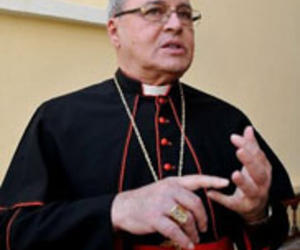Cuba’s economic reforms get Catholic nod
- Submitted by: manso
- Society
- 01 / 04 / 2011

January 3 2011 at 10:22am.AFP.After decades of roller-coaster relations between communist Cuba's government and the Roman Catholic church, Havana on Sunday won the Catholic hierarchy's warm approval of its limited economic reform plans.
Cardinal Jaime Ortega said in a New Year's mass at Havana cathedral that the government reforms “involve all of us” and require “understanding from the people” whom he called on to size up the changes critically.
The local church is arguably the most influential non-state actor in Cuba. But its influence is more with the government than the people.
In a Caribbean country of more than 11 million, most Cubans do not identify themselves as believers or go to church.
Ortega offered up a prayer “for the successful implementation of this process of renewal for the good of all the people.”
The cardinal's encouraging tone reflected a growing rapprochement between church and state in Cuba since a landmark 1998 visit by pope John Paul II and his call for Cuba to “open itself to the world.”
President Raul Castro, 79, argues that Cuba's economic model, which has survived two decades since the Soviet Union dissolved, must be “updated” urgently without copying other countries, and without what he sees as “capitalism.”
His proposed reforms are up for debate in April at the Cuban Communist Party Congress, the first since 1997.
The reforms, which include eventually cutting more than a million government jobs, represent a major management shakeup for the communist island.
They encourage some new foreign investment, call for more private self-employment and a reduced government role in the market.
The proposals make efficiency a vital part of economic management, aim to do away with state subsidies, including food rations, and foresee starting a tax system.
But the government still would control the lion's share of the economy. Cubans only earn 17 dollars a month on average, most are state employees and most spend hours a day trying to figure out how to put food on the table.
Ortega also has acted as a de facto mediator in the government's release of some of its political prisoners.Sapa-AFP
Source: www.pretorianews.co.za/cuba-s-economic-reforms-get-catholic-nod-1.1007326
Comments